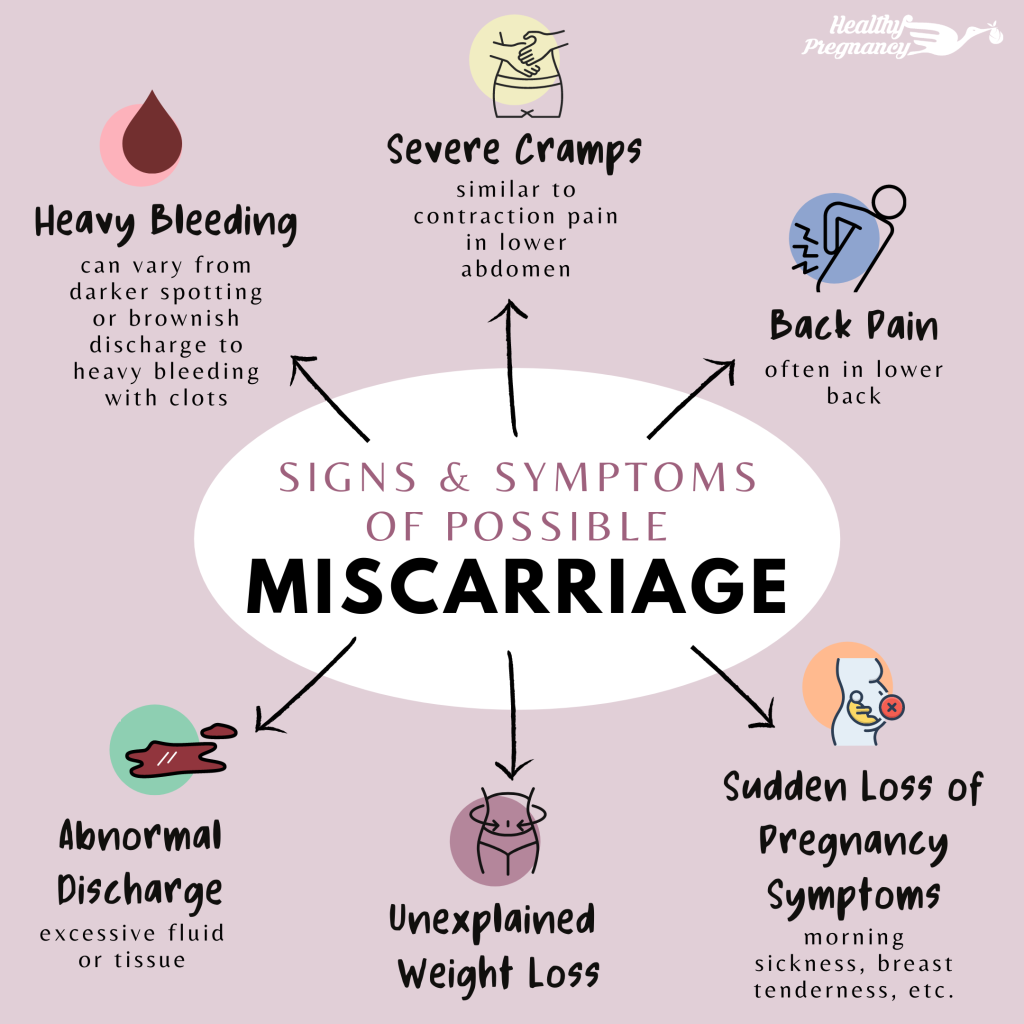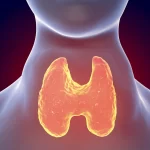
Introduction: Miscarriage Symptoms
The purpose of this article is to provide information on the symptoms and signs of miscarriage. This information can help individuals who are pregnant or trying to become pregnant to recognize the potential signs of a miscarriage and to seek medical attention as needed. Understanding the symptoms of miscarriage can also help individuals cope with the physical and emotional effects of a miscarriage, and to find support and resources for navigating this difficult experience.
Miscarriage, also known as spontaneous abortion, is the loss of a pregnancy before the 20th week. It is a relatively common occurrence, with estimates suggesting that between 10% and 25% of all recognized pregnancies end in miscarriage. The actual number is likely higher, as many miscarriages occur before a woman even knows she is pregnant.
The most common miscarriage causes is chromosomal abnormalities in the developing embryo, but other factors such as hormonal imbalances, uterine abnormalities, and certain infections can also contribute to the loss of a pregnancy.
While a miscarriage can be a physically and emotionally difficult experience, most women who have a miscarriage go on to have successful pregnancies in the future. It is important for individuals who have experienced a miscarriage to seek medical attention and to seek support from loved ones, healthcare providers, and support groups as needed.
Definition Of Miscarriage
Miscarriage is the loss of a pregnancy before the 20th week of gestation. It can also be referred to as spontaneous abortion.
There are a number of misunderstandings and myths about miscarriage that can be harmful and misleading. Some people believe that miscarriage is rare, but it is actually relatively common, with estimates suggesting that between 10% and 25% of all recognized pregnancies end in miscarriage. Others believe that certain activities, such as exercising or having sex, can cause a miscarriage, but this is not true. In most cases, the cause of a miscarriage is not something the pregnant person did or did not do.
It is also a myth that a person can “miscarry” a baby that they were not actually pregnant with. Pregnancy tests are very accurate and it is not possible to have a miscarriage without being pregnant.
Finally, some people believe that a miscarriage is less significant or meaningful than a full-term pregnancy, but this is not true. A miscarriage can be a physically and emotionally difficult experience and it is important for individuals who have experienced a miscarriage to seek support and care as needed.
A miscarriage is the loss of a pregnancy before the 20th week of gestation. It is also known as spontaneous abortion. Pregnancies that end after the 20th week are generally referred to as preterm deliveries.
Miscarriage can be a physically and emotionally difficult experience for those who experience it. It is important for individuals who have had a miscarriage to seek medical attention and to find support from loved ones, healthcare providers, and support groups as needed. While it is common for individuals to have successful pregnancies after a miscarriage, it is important to discuss any concerns with a healthcare provider.
Common Miscarriage Symptoms & Signs
The most common miscarriage symptoms and signs (early miscarriage symptoms 2 weeks, miscarriage symptoms 6 weeks, miscarriage symptoms 4 weeks, miscarriage symptoms at 8 weeks) include:
- Vaginal bleeding: This can range from light spotting to heavy bleeding, and can be accompanied by cramping and abdominal pain.
- Cramping: Some individuals may experience mild to severe cramps in the lower abdomen or back.
- Loss of pregnancy symptoms: Some individuals may no longer experience the symptoms of pregnancy, such as nausea, breast tenderness, or a missed period.
- Passage of tissue or clots: Some individuals may pass tissue or clots through the vagina. This can be accompanied by bleeding or cramping.

It is important to note that not all miscarriages will have the same miscarriage symptoms and the severity of symptoms can vary. It is also possible to experience a miscarriage without any symptoms. If you are pregnant and experiencing any of the above symptoms, it is important to seek medical attention.
It is important to note that the miscarriage symptoms can vary in intensity and that not all miscarriages will have the same symptoms. Some individuals may experience mild bleeding and cramping, while others may have more severe symptoms. It is also possible to experience a miscarriage without any symptoms at all.
It is important to seek medical attention if you are pregnant and experiencing any symptoms that are unusual or concerning. A healthcare provider will be able to confirm whether or not you are having a miscarriage and provide the necessary care and support. It is also important to remember that experiencing a miscarriage does not necessarily mean that you will not be able to have a successful pregnancy in the future.
Less Common Miscarriage Symptoms
In addition to the more common miscarriage symptoms, such as vaginal bleeding and cramping, there are some less common symptoms that may also be experienced. These can include:
- Abdominal pain or discomfort: Some individuals may experience pain or discomfort in the lower abdomen or back. This can range from mild to severe.
- Back pain: Some individuals may experience back pain in addition to or instead of abdominal pain.
- Passage of tissue or clots: Some individuals may pass tissue or clots through the vagina. This can be accompanied by bleeding or cramping.
It is important to note that the severity and type of symptoms can vary and that not all individuals will experience the same symptoms. If you are pregnant and experiencing any of the above miscarriage symptoms, it is important to seek medical attention.
When To Seek Medical Attention
It is important to seek medical attention if you are pregnant and experiencing any of the symptoms of miscarriage. These symptoms can include vaginal bleeding, cramping, loss of pregnancy symptoms, abdominal pain or discomfort, back pain, and passage of tissue or clots.
Seeking medical attention can help confirm whether or not you are having a miscarriage and provide the necessary care and support. It is also important to remember that a miscarriage does not necessarily mean that you will not be able to have a successful pregnancy in the future.
If you are experiencing any of the miscarriage symptoms, you should contact your healthcare provider or go to the nearest emergency department. It is important to seek medical attention as soon as possible, as prompt treatment can sometimes help prevent a miscarriage or manage any complications that may arise.
How to contact a healthcare provider and what to expect during a visit?
If you are experiencing of symptoms of miscarriage and need to seek medical attention, there are a few steps you can take:
- Contact your healthcare provider: If you have a regular healthcare provider, you should contact their office and explain your symptoms. They will be able to advise you on what to do next, which may include making an appointment or going to the nearest emergency department.
- Go to the nearest emergency department: If you do not have a healthcare provider or if your symptoms are severe, you should go to the nearest emergency department. Be sure to explain your miscarriage symptoms to the triage nurse or doctor.
During a visit to a healthcare provider or emergency department, you can expect the following:
- A medical history: The healthcare provider will ask you about your medical history and any symptoms you are experiencing.
- A physical examination: The healthcare provider will perform a physical examination, which may include a pelvic exam.
- Testing: The healthcare provider may recommend testing to confirm whether or not you are having a miscarriage. This may include a blood test or an ultrasound.
- Treatment: If you are experiencing a miscarriage, the healthcare provider will discuss your treatment options with you. This may include medication to manage symptoms or a procedure to remove any remaining tissue.
- Follow-up care: The healthcare provider will discuss follow-up care with you, which may include returning for additional appointments or seeking support from a mental health provider or support group.
Coping With Miscarriage
Tips for coping with the emotional and physical effects of miscarriage.
Experiencing a miscarriage can be a physically and emotionally difficult experience. Here are a few tips for coping with the emotional and physical effects of a miscarriage:
- Seek support: It can be helpful to talk to someone about your feelings and experiences. This can be a loved one, a healthcare provider, or a support group.
- Take care of yourself: It is important to take care of your physical and emotional health during this time. This may include getting plenty of rest, eating well, and engaging in self-care activities such as exercise or relaxation techniques.
- Allow yourself to grieve: It is normal to experience a range of emotions after a miscarriage, including sadness, grief, and anger. Allow yourself to feel and express these emotions in a healthy way.
- Seek professional help: If you are struggling to cope with the emotional effects of a miscarriage, it may be helpful to seek the support of a mental health professional.
- Talk to your healthcare provider: Your healthcare provider can provide information and support as you navigate the physical and emotional effects of a miscarriage. They can also provide guidance on planning for future pregnancies.
- Remember that you are not alone: It is common to feel isolated or alone after a miscarriage, but it is important to remember that you are not alone and that there are resources available to help you cope.
Seeking support from loved ones, a healthcare provider, or a support group.
Seeking support can be an important part of coping with the emotional and physical effects of a miscarriage. There are a few different sources of support you may want to consider:
- Loved ones: It can be helpful to talk to someone you trust, such as a partner, family member, or friend, about your feelings and experiences. They can provide emotional support and be there for you during this difficult time.
- Healthcare provider: Your healthcare provider can provide information and support as you navigate the physical and emotional effects of a miscarriage. They can also provide guidance on planning for future pregnancies.
- Support groups: There are many support groups for individuals who have experienced a miscarriage. These groups can provide a safe and supportive space to talk about your feelings and experiences and connect with others who have had similar experiences.
It is important to find the type of support that works best for you and to reach out for help if you need it. Remember that you are not alone and that there are resources available to help you cope.
Conclusion
The main points of the article encourage readers to seek medical attention if they experience any of the miscarriage symptoms.
In summary, a miscarriage is the loss of a pregnancy before the 20th week of gestation. It is a relatively common occurrence, with estimates suggesting that between 10% and 25% of all recognized pregnancies end in miscarriage. The most common of miscarriage symptoms include vaginal bleeding, cramping, and loss of pregnancy symptoms. Less common symptoms can include abdominal pain or discomfort, back pain, and passage of tissue or clots. It is important to seek medical attention if you are experiencing any of the symptoms of a miscarriage, as prompt treatment can sometimes help prevent a miscarriage or manage any complications that may arise. It is also important to find support from loved ones, a healthcare provider, or a support group to cope with the emotional and physical effects of a miscarriage. If you are pregnant and experiencing any unusual or concerning symptoms, don’t hesitate to seek medical attention.
Resources for additional information and support.
There are a number of resources available for individuals seeking additional information and support related to symptoms of miscarriage:
- American Pregnancy Association: This organization provides information and support for individuals who have experienced a miscarriage. They have a helpline that can be reached at 1-800-672-2296 and a website with information on coping with a miscarriage, planning for future pregnancies, and finding support.
- The Miscarriage Association: This UK-based organization provides information and support for individuals who have experienced a miscarriage. They have a helpline that can be reached at 01924 200799 and a website with information on coping with a miscarriage, finding support, and understanding the physical and emotional effects of symptoms of miscarriage.
- Resolve The National Infertility Association: This organization provides information and support for individuals who are experiencing fertility challenges, including miscarriage. They have a helpline that can be reached at 1-888-623-0744 and a website with information on coping with a miscarriage, finding support, and understanding the physical and emotional effects of a miscarriage.
- The American College of Obstetricians and Gynecologists: This organization provides information and guidance on a range of women’s health topics, including miscarriage. They have a website with information on the signs and symptoms of a miscarriage, treatment options, and coping with a miscarriage.
- The Mayo Clinic: This organization provides information on a range of health topics, including miscarriage. They have a website with information on the causes of a miscarriage, the miscarriage symptoms and signs, and treatment options.
It is important to find the resources and support that are most helpful for you to understand. Remember that you are not alone and that there are resources available to help you cope with the physical and emotional effects of a miscarriage.






